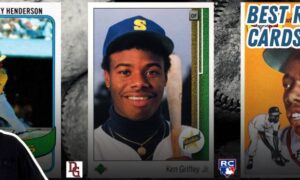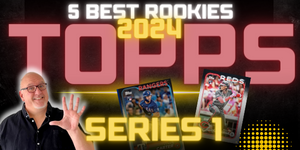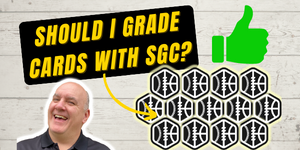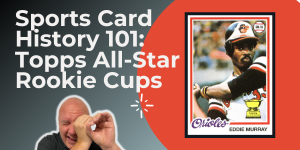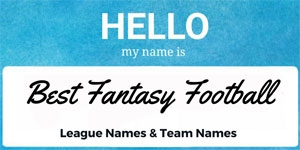One of the up-and-coming sports card grading companies is CSG Grading, which is part of Certified Collectibles Group. (CSG Grading recently became CGC Grading, but these two are the same company.) That company has been around for a long time, grading things like coins, currency, stamps and comic books, and now they’re aiming to take a piece of that sports card grading market.
I sent in four cards to get graded in 2021 and I got them back rather quickly — much faster than their website said I’d get it back. I believe it was right around one month total that it took for them to return my cards graded to me.
(On a side note, I also found this article, Ultimate Guide to Protecting Your Collectibles, which is an interesting article you might find helpful. It basically discusses about getting collectibles insurance, which isn’t a bad idea if you have a great collection!)
The Cards I Sent In To CSG
Among the cards I sent in for grading were some cardboard stock cards from the early ’70s and ’90s, some paper stock cards from 2021 and one chromium card from 2017. My goal was to see how they graded on different types of card stock.
- 1972 Topps Brian Griese
- 1991 Topps Chipper Jones RC
- 2017 Donruss Optic De’Aaron Fox RC
- 2021 Topps Topps Ke’Bryan Hayes RC (1965 Throwback)
I chose these cards to send in because I had duplicates of some of them (so if I wasn’t crazy about them, I could send the others in to another grading company.) Also, I chose these two cards (Griese and Hayes) because I thought they’d look great with the CSG green label. I was basically trying to color-match the label. (Yes, I know the Pirates don’t have any green in their uniforms, but the card itself has a ton of green (grass) and black and yellow looks good with green.)
Why Did I Send Cards to CSG Grading?
I wanted to try out CSG Grading because I wanted to educate both myself and my readers! First, I thought it was important to review what we know about CSG, and then discuss what we’ve heard about their slabs. Then I can share what I learned about them after my cards came back.
What We Know:
- Certified Collectibles Group was founded in 2005, grading several different collectible assets through the years. So PSA came around first in 1991, with Beckett (BGS) coming next in 1995, and SGC starting in 1998. HGA (Hybrid Grading Approach) joined the foray in 2021, after CSG started grading cards in 2020.
- That means CSG is an established company in the grading business for more than a decade. They’ve likely learned some things from grading those other collectible items that other grading companies haven’t learned.
- CSG hired away two veteran graders from Beckett that have a combined 30 years of grading experience, which allowed them to hit the ground running.
What We Heard:
- The green labels just aren’t popular. I wanted to see if they were bad with all cards, or certain cards. (They have since changed their labels twice, both times for the better!)
- The slabs were too tall because their labels are so tall.
- The resale values on CSG slabs aren’t very good.
- CSG grading is very tough!
Have You Seen the CGC Grading Kit?
This grading kit is pretty legit, and I’m shocked that I haven’t seen the other grading companies do something similar. First, it would really make life easier for new graders, and second, it perpetuates their brand loyalty, as the sleeves are CSG branded. Kudos to CSG for this kit — it’s obviously something they learned with their other grading companies — help the customer use your service over anyone else’s.
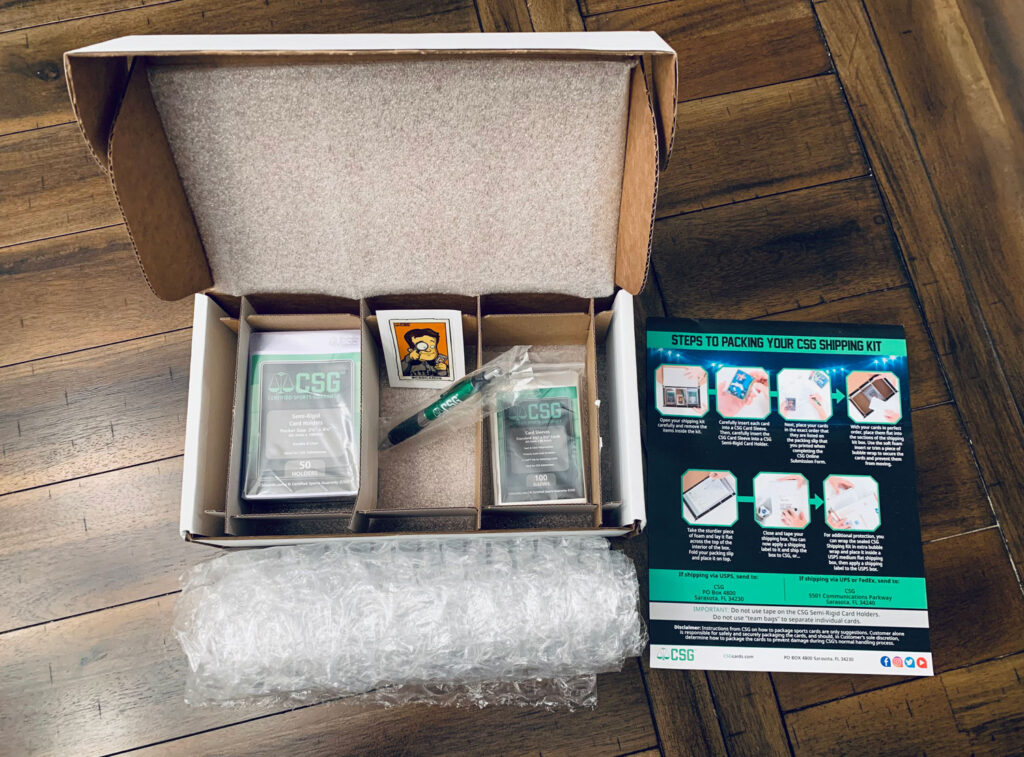
The CSG Grading Kit comes with:
- 1 shipping box (for up to 150 cards)
- 2 foam inserts
- 3 pieces of bubble wrap
- 1 pack of 100 CSG Card Sleeves
- 1 pack of 50 CSG Semi-Rigid Card Holders
- CSG pen
- CSG sticker
- Price: $20 or $5 (New members at Associate Level (Cost $25 per year) get a coupon for this kit to take $15 off.)
Who Are the Players on the Cards I’m Getting Graded?
Bob Griese, QB, Miami Dolphins – 1972 Topps: Pro Football Hall-of-Famer; Famously led the Dolphins to three Super Bowls, including two wins (and the only perfect NFL record ever!); Griese was also the NFL MVP in 1971, which is the season this card represented.
Chipper Jones, 3B, Atlanta Braves – 1991 Topps RC: Larry Wayne was the No. 1 overall pick in 1991; The Braves went to the World Series the very next year, becoming the first team to go from worst to first (in 1991, the season this card represented. Chipper is a former MVP, former batting champion, World Series champion, and an eight-time All-Star.
Ke’Bryan Hayes, 3B, Pittsburgh Pirates – 2021 Topps 1965 Throwback RC: Hayes was the big rookie everyone was chasing at the beginning of the 2021 card-collecting season, but he struggled offensively after a great 2020. I expect him to come around offensively, but he could already be the best defensive third baseman in the majors right now.
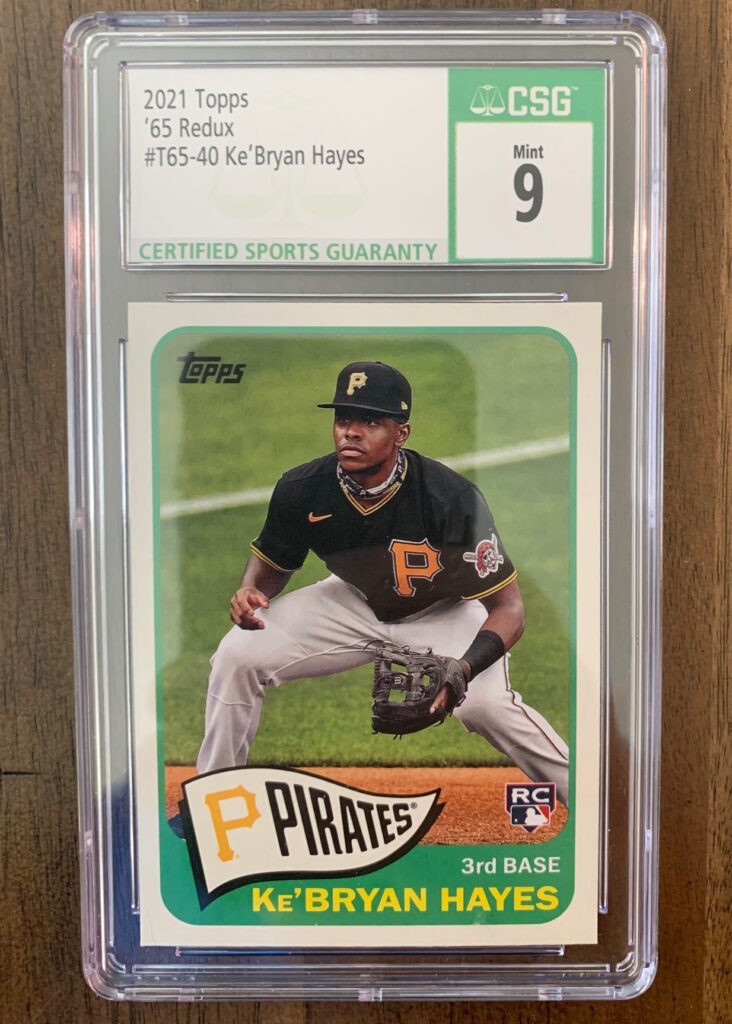
De’Aaron Fox, PG, Sacramento Kings – 2017 Donruss Optic Rated Rookie Red & Yellow: Ater some mediocre seasons, Fox has started to come around. Since Alvin Gentry took over for Luke Walton as head coach, Fox has become a top-25 scorer with 22.4 points per game!
Pros & Cons of Sending Your Sports Cards to CSG/CGC
Pros — Here are the good things I discovered about grading with CGC:
- Clarity: These acrylic slabs are absolutely beautiful, and the clarity has to be the best of any of the major grading companies.
- Low price: Economy costs just $20 per card (but remember, you have a one-time $25 fee for annual membership)
- Speed of service: I sent these on 11/4, and CSG entered them into their system on 11/9. I received these cards back on 12/14. So, from door to door, it took about 28 work days, from when entered into their system. Their site says the Economy tier of service has a 39-day wait, so I like that they are under-promising and overdelivering. Their standard service ($30) is 29 average days! We even beat that!
Here are some of the not-so-good things I discovered about CSG slabs:
- Unpopular Color of Label: It’s obvious that CSG chose that green color to fall in line with their other products: NGC, PMG, ASG and CGC, which all have different colors in the same scheme. That green color would have fit in much better with one of their currency grading brands! (They changed the colors of their label to black in 2022, so this point is moot!)
- “Guaranty” Spelling: It’s grammatically correct, but it makes my eye twitch. They should just call it, “Ye Olde CSG.” (By the way, SGC spells their “guaranty” similarly, but you don’t see it on your slabs.)
My Final Grade For CSG Grading — DG 8.5
First, let’s go over the complaints I had heard about CSG. The slabs are not too tall, but I can see why some think the labels are too tall, especially if you don’t get subgrades. I keep my cards in displays, an these fit in their nicely.
Yes, the green color of the sticker is kind of limiting. They need to (and I believe they will) change to a black label instead.
While the resale on these slabs might not be great, you’ll get these back faster than PSA, so you can reinvest your money faster. Plus, the cheaper cost for grading offsets some of the resale differences, and if you end up getting subgrades (an extra $10 per card), then some might pay more for a better centered card with subgrades.
One thing I love about CSG is that they offer “Crossover” review for your cards graded by other companies. They will look at the card in the slab to determine if they think it should grade higher with CSG. If they don’t think it will grade higher than its current grade, then they won’t crack the slab.
Finally, I had heard that CSG was very tough on grading, and the results from my submission doesn’t change my mind. I would like them to kindly lighten up on the grades for my cards, but be much harder on the grades of other people’s cards, thank you!
What are your experiences with CSG Grading? Have you tried out SGC Grading yet? I list off some of the reasons why SGC is the grading company with the most upside here. And I explain the simple steps to sending cards to SGC Grading here!





